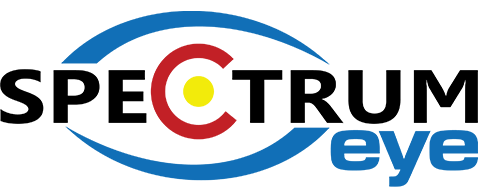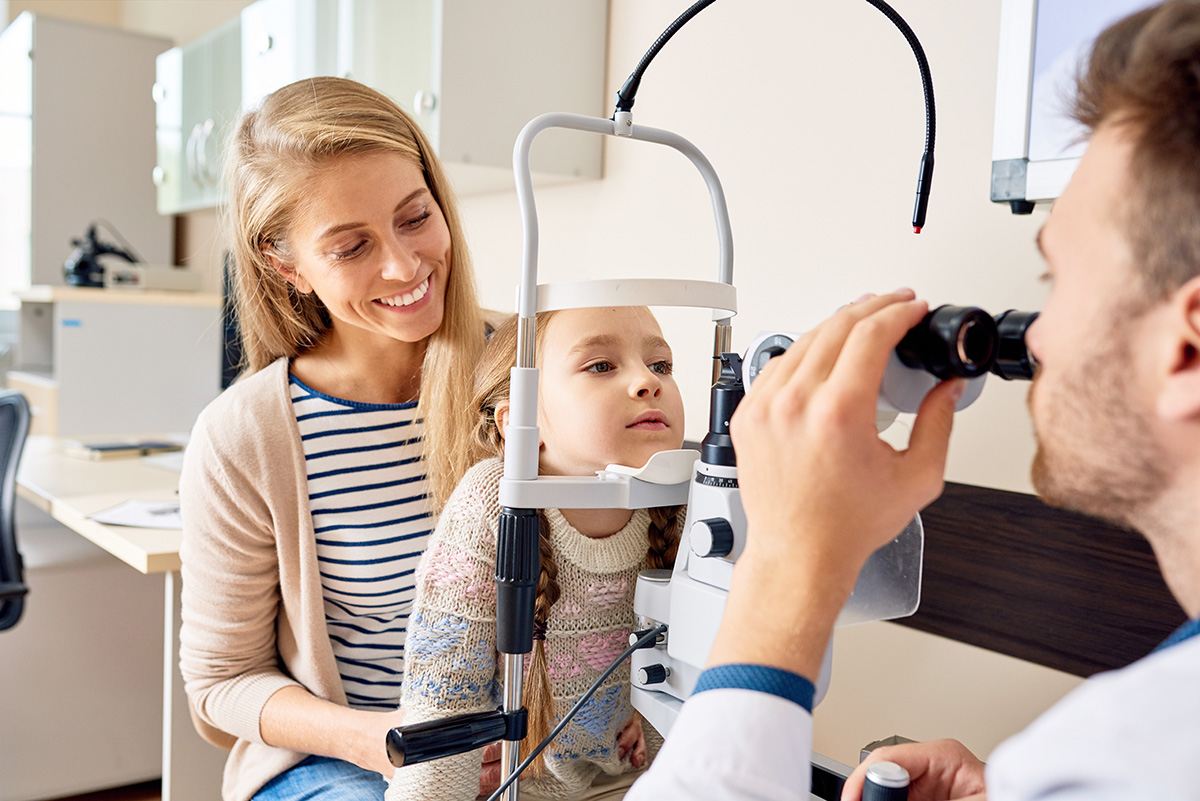Just like adults, children need to have their eyes examined regularly. Pediatric eye exams are essential to uncovering vision problems, detecting eye diseases early, and preserving long-term vision. School screenings can reveal a possible vision problem, but only a comprehensive eye exam performed by an optometrist will uncover signs of eye diseases.
This blog post shares everything you need to know about pediatric eye exams, including the benefits, signs of vision problems in children, and Medicaid coverage for vision care.
Benefits of pediatric eye exams
Pediatric eye exams are crucial to preserving long-term vision for children. Regular exams not only help uncover potential vision problems but also detect early warning signs of serious eye diseases. During the exam, your child’s doctor will look for a range of issues including:
- Nearsightedness (myopia)
- Farsightedness (hyperopia)
- Astigmatism
- Strabismus (crossed eyes)
- Amblyopia (lazy eye)
- Color blindness
Early detection of these issues is key to preventing further damage. For example, if amblyopia is left untreated during childhood, it can result in permanent vision damage or loss of depth perception.
When to schedule pediatric eye exams
Now that you understand the importance of pediatric eye exams, what’s the ideal schedule for them? Children should have their first comprehensive eye exam at 6 months. This may seem early, but it is crucial for predicting future vision challenges and other health issues.
A second eye exam should be scheduled at age 3. Once children are in school, they should visit an eye doctor once every two years. However, your child may need more frequent exams if they have any of the issues listed above. If your child wears glasses or contact lenses, they should see an eye doctor annually or as recommended by their optometrist.
Signs of vision problems in children
Children rarely complain about vision problems, so it can be hard for parents to know when it’s time for an eye exam. Be on the lookout for vision problems, and be sure to schedule an eye exam if you notice any of these signs:
- Frequent blinking, squinting, or irregular eye movements
- Frequently turning or tilting their head
- Covering or closing one eye to see better
- Poor hand-eye coordination or motor skills
- Rubbing their eyes frequently
- Frequent headaches
- Leaning in too close to see something or read
- Learning difficulties and poor handwriting
If you notice any of these behaviors, it’s important that you schedule an eye exam immediately. Delaying care may result in the development of more serious issues or even permanent damage.
What to expect during the exam
Pediatric eye exams vary depending on the age of the child, but an exam will generally include a case history, vision testing, a determination of whether eyeglasses are needed, an eye health evaluation, and a vision alignment test. If any issues are discovered during the exam, the optometrist can recommend treatment to correct the problem and prescribe glasses as necessary.
At Spectrum Eye Care, we work with children to ensure they feel comfortable during their eye exams. Our eye care professionals ensure that eyeglasses or contact lenses fit correctly, show children how to care for them, and provide parents with useful information regarding treatment options and eye care tips. If your child is showing signs of vision problems, make sure to schedule a visit with our office today!
Medicaid coverage for pediatric eye exams
Depending on your healthcare plan and coverage, it may not be feasible to take your child for an eye exam. Fortunately, many states cover pediatric eye exams under their Medicaid program. This includes a routine eye exam with some states also covering necessary follow-up visits and treatments. Many states also cover eyeglasses or contact lenses when medically necessary.
Each state has different requirements for eligibility in its Medicaid program, but qualifications are generally based on income level and other factors such as age, disability status, and family size. Some states also offer additional assistance programs for children with special needs or vision problems. You can learn more about eligibility requirements by contacting your state’s Medicaid office.
At Spectrum Eye Care, we offer comprehensive pediatric eye exams to protect your child’s developing vision. If you’re looking for an eye doctor in Colorado Springs that accepts Medicaid or your child is overdue for an eye exam, schedule an appointment at our office today!




